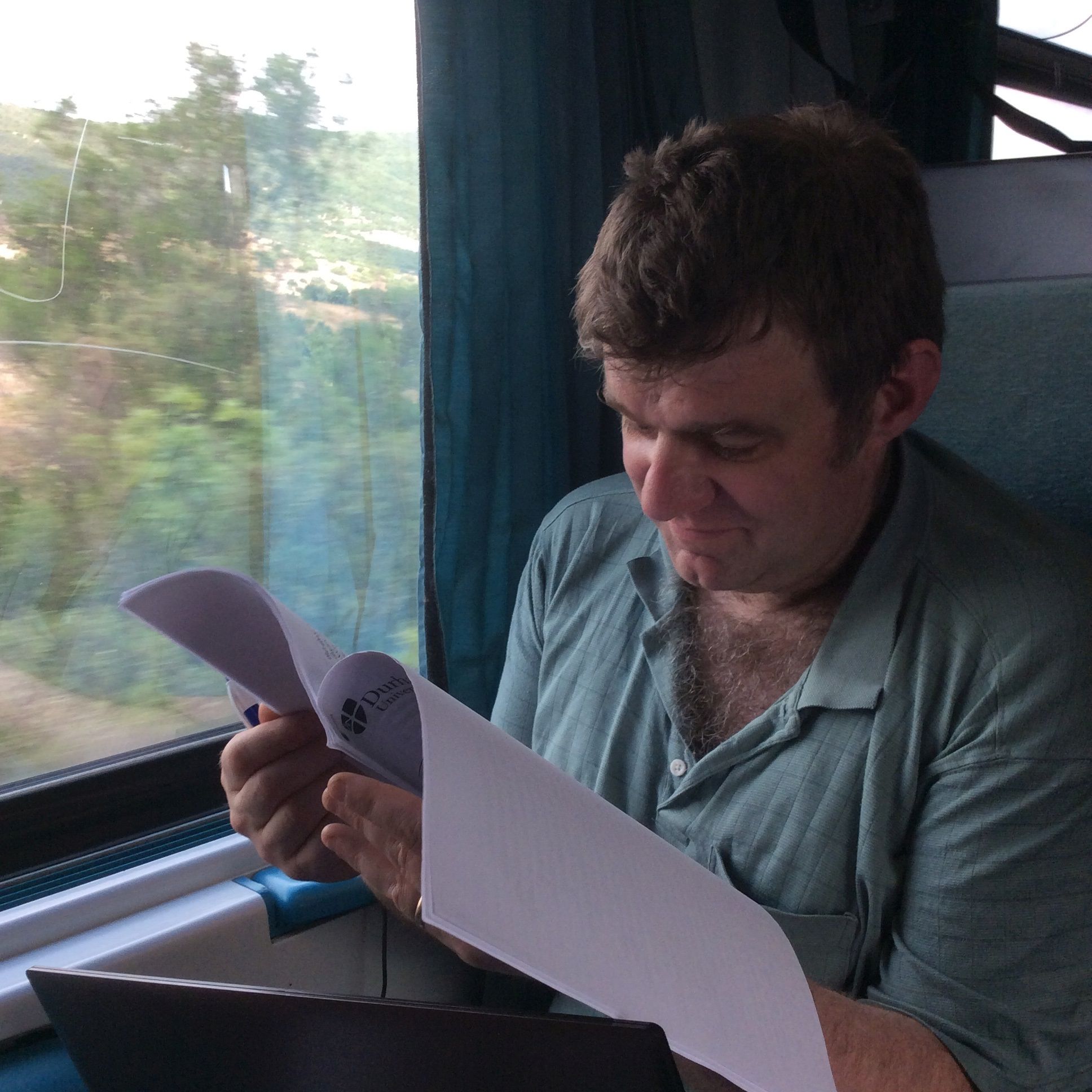
Jeremy Bonner began his graduate student career at Catholic University while his late father Gerald Bonner was serving as CUA’s Visiting Professor of Early Christian Studies (years he termed the happiest since his undergraduate days at Oxford in the late 1940s). As Jeremy puts it, “CUA provided me with historiographic expertise in those happy days when the history department still resided in the dilapidated basement of Gibbons Hall, and Paula Blackwell served as the all-seeing, all-knowing departmental administrator.”
Jeremy’s dissertation, written under the direction of Gary Gerstle, foreshadowed his later preoccupation with religious history, as Mormons and Norwegian Lutherans intruded upon a study supposedly concerned with New Deal politics beyond the Mississippi. Following that came a Library of Congress fellowship, in which he examined the early career of an Episcopal priest who later abandoned his clerical vocation for “progressive” politics. In 2003, a whole new vista was opened when a commission from a priest in the Diocese of Tulsa gave rise to research that yielded a grassroots study of the impact of the Second Vatican Council amongst Bible Belt Catholics (published as The Road to Renewal: Victor Joseph Reed and Oklahoma Catholicism, 1905-1971, CUA Press, 2007). The following year, Jeremy and his wife Jennifer moved to Pittsburgh, where he was precipitated into the world of Episcopal/Anglican conflict and, with the support of then Bishop Bob Duncan, embarked upon an account of the Anglican presence in southwestern Pennsylvania across three centuries that was published in 2009 (Called Out of Darkness into Marvelous Light: A History of the Episcopal Diocese of Pittsburgh, 1750-2006, Wipf and Stock).
“My scholarly career has taken me to a number of settings that I would have otherwise have missed. In Oklahoma City I had the delight of being handed the keys to the archdiocesan archives (they had no archivist at the time) and left to dig my way through a mountain of unfiled materials (such freedom I cannot hope again to enjoy). In Pittsburgh, I documented the past even as, in the present, the Episcopal Diocese of Pittsburgh moved from resistance to the prevailing theology of the Episcopal Church to open rebellion and withdrawal. As a member of the diocese, my research helped explain how an obscure body of Anglicans in the heart of the Rustbelt had made the transition from the mainstream to the margins (though not the margins of the Anglican Communion). For good measure, I had the interesting experiences of serving as a delegate to the conventions of both the departing and remaining parishes, an opportunity no historian could resist, and from 2010 to 2013 was retained by the Episcopal Diocese of Quincy (Illinois) as a historian expert witness, which brought me into a courtroom for the first time in my life!”
He eventually returned to the United Kingdom, and was Michael Ramsey Fellow in Anglican Studies at the University of Durham from 2013 to 2015. Durham provided Jeremy the long-desired participation in a community of scholars, teaching students (he is particularly proud of a course on modern mission that he put together at comparatively short notice) and sharing in day-to-day administrative burdens. But, as he reflects, “perhaps the most sobering reflection after sixteen years of postdoctoral research (even if humility be counted a virtue) is the extent to which my achievements have been contingent on the generosity of persons outside the academy. Monographs bear my name, but they would have neither been written nor published without the material and emotional support of family, friends and – most especially – my wife.” He has recently returned to graduate school to study for another degree, in Public Health and Health Services Research, to explore the intersection of health care and religious faith in a 21st century context.
“My limited experience of teaching in university systems, American and English, is that, as institutions, their assertions of collegiality are more honored in the breach than in the observance. One feature of life in the CUA history department in my day that has remained with me over the years was its essentially collegial character. In an academic world that is increasingly market-driven, it is cheering to look back on a time when the study of history still seemed to be an end in itself. I hope that such a spirit endures, while students, faculty and even buildings change.”
